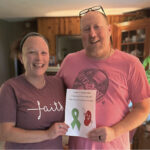
If you have ever experienced nerve pain, you know how debilitating it can be.
Trigeminal neuralgia is a type of nerve pain that affects your face, typically in your jaw or cheek. The pain can be sharp or feel like a burning sensation. It can be so severe that you have difficulty eating or drinking.
Most flare-ups begin with tingling or numbness in your face, and the pain can come and go. During a flare-up, the bursts of pain are more frequent and almost never stop. The intensity of the pain can make your day-to-day activities unbearable, but the condition itself is not life threatening.
So, what causes trigeminal neuralgia?
The most common cause of trigeminal neuralgia is a blood vessel pressing against your trigeminal nerve. Rare causes include multiple sclerosis or tumors. This nerve condition is most common in people over 50 years old and is more common in women than men.
There are multiple symptoms of trigeminal neuralgia, including:
- Pain in the cheek or jaw (typically comes and goes and is mostly one-sided)
- Absence of pain between flare-ups
- Pain that feels like electric shocks or stabbing
- Pain triggered by touching, eating, brushing your teeth or other factors like wind
- Anxiety from the thought of the pain returning
Then how is trigeminal neuralgia diagnosed?
Trigeminal neuralgia can be diagnosed by your primary care provider based on your description of your pain. This diagnosis is based on three different factors:
- Type of pain: Pain related to trigeminal neuralgia is sudden, shock-like and brief.
- Location of pain: The pain is mostly in your jaw or cheek.
- Triggers of pain: It usually occurs after stimulation of your cheeks from things like eating, talking or brushing your teeth.
If necessary, your provider can order additional tests, which may include a neurological exam or an MRI.
Please know that facial pain could be caused by a number of different conditions, so accurate diagnosis is important.
Learn more about trigeminal neuralgia and how it is treated in a blog post at UPMCPinnac.com/TrigeminalNeuralgia.
Dr. Chikezie Eseonu is a neurosurgeon at UPMC Pinnacle.





